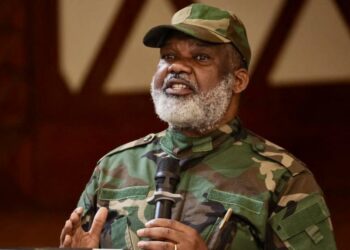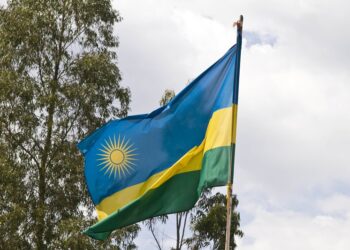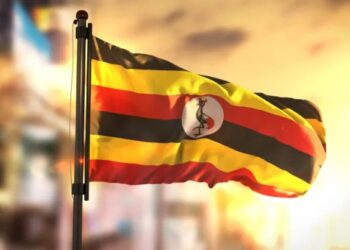Mozambique is rich in natural resources, biologically and culturally diverse, and has a tropical climate. Its extensive coastline, fronting the Mozambique Channel, which separates mainland Africa from the island of Madagascar, offers some of Africa’s best natural harbors. These have allowed Mozambique an important role in the maritime economy of the Indian Ocean. From the mid-18th century onward, the slave trade to the Indian and Atlantic Oceans became increasingly important, with different impacts in the respective regions. Modern Portuguese colonialism was established by means of military campaigns: having limited capital, Portugal granted concessions for part of the territory to companies. When these concessions ended in 1942, the colonial state developed a direct administration throughout the territory, headquartered in Lourenço Marques (Maputo). In the early 21st century, Mozambique suffered several natural disasters, including drought, an earthquake, and devastating floods. While the country’s economic growth, though adversely affected by these events, was bolstered by significant debt relief and by economic reform measures enacted by the government. The country also saw an economic boom as foreign investors were drawn to existing and newly discovered sources of coal and natural gas.
At the same time, new investments in Mozambique are changing the landscape of the nation’s political economy. There has been great interest on the part of emerging powers, like China and Brazil, illustrating new trends that are arguably changing geo-strategic relations on the global level. Since 1975, China and Mozambique have signed seven important bilateral treaties, culminating in the 2007 agreement to strengthen bilateral trade and economic relations. After the end of the war, Chinese economic actors such as construction companies and timber merchants were among the first to re-enter the country. Mozambique’s natural resources have been under-explored, but the landscape has drastically changed. In 2004, for instance, the Brazilian company Vale do Rio Doce won a bid to develop the Moatize coalfield in Tete province, with an expected coal production of 15 million tonnes per year, starting in 2009/2010. In a similar vein, large-scale natural gas production started in 2004 with the exploration of the Pande/Temane gas fields in the Inhambabe province by the South African company Sasol and is expected to grow steadily to approximately 145,000 TJ (terajoule, which is equal to one trillion tonnes) per year. For the nonce, Mozambique finds itself in a situation it was in almost 40 years ago. Then it was forced to undergo a necessary but painful transition from its Marxist-Leninist path. This was precipitated by the collapse of its economy. It, however, remained an undemocratic one-party state.
Today, it faces the challenge of changing its entire governance model. Instead, democratization backslid, producing and reproducing forms of political exclusion while the economic model implemented did not address or even exacerbated socio-economic problems such as poverty and inequalities. Moreover, political exclusion, poverty, and inequalities are, ultimately, a breeding ground for the occurrence and recurrence of violent conflicts in the country. Since 2017, Mozambique has experienced the Islamic insurgency destabilizing the northern region of Cabo Delgado and potentially the whole country as well as the SADC region. Multinational energy giants like TotalEnergies and Exxon Mobil have been hesitant to restart work, despite calls by Mozambique’s government for the projects to resume. According to observers, the current crisis in Mozambique did not occur in a vacuum but is intertwined with historical grievances stemming from the country’s violent past. Currently, Mozambique is still in the shadow of a bloody 15-year civil war. The leftist FRELIMO fought against the rebel group Resistencia Nacional Mocambicana, or the National Resistance Movement of Mozambique (RENAMO), after independence. The country only held its first elections in 1994, and this was the first vote where there were no armed groups connected to political parties after a process to disarm militias.
Even so, FRELIMO has governed Mozambique since the country’s independence from Portugal in 1975, with RENAMO continually maintaining its position as the strongest opposition party in Mozambique’s political history. However, government officials have often been linked to graft, notably in the infamous $2 billion hidden debt affair known as the “tuna bond scandal,” which dried up most foreign investment and led to a sharp depreciation of the national currency, the metical, in 2016. Despite huge hydrocarbon resources, Mozambique is one of the least developed countries in the world, ranking 183 of 193 nations on the UN Human Development Index. It has also experienced deadly cyclones in recent years that have laid waste to the port city of Beira and repeatedly inundated crops belonging to subsistence farmers. Frustration with the ruling party’s grip on the state apparatus has piled up among a populace demanding more democratic space, accountable government, and better prospects for the future. This sentiment is particularly intense among young people living in towns who are active on social media and make up the core of Mondlane’s support base.
The party’s leaders, including outgoing President Filipe Nyusi, fought in the country’s liberation war, meaning that FRELIMO was highly revered by older members of the population who experienced the war. However, political analysts note that the party has become increasingly unpopular among young people. It’s part of a larger trend in Southern Africa where youth, who do not have a sense of nostalgia around independence movements-turned-establishment parties, are more critical of their governments and more ready to vote them out. Botswana, South Africa, and Namibia all recorded total or partial opposition leads in general elections this year. While other experts say the Mozambique crisis is not only a political and humanitarian issue—it has far-reaching implications for global stability. The country is one of the largest producers of critical minerals, including cobalt, lithium, and rare earth elements—vital for the global energy transition and technologies such as electric vehicles and smartphones. Moreover, Mozambique’s offshore natural gas reserves are crucial for the energy needs of Asia and Europe.
What are Mozambique’s contemporary struggles?
The violence erupted following the announcement of presidential election results, which declared Daniel Chapo of the Mozambique Liberation Front as the winner with 65 percent of the vote. Mozambique held general elections on 9 October 2024. Opposition members and independent observers alleged vote-rigging, prompting protests that police violently repressed during and after the vote counting process. Moreover, on October 21, 2024, opposition presidential candidate Financio Mondeline called for popular protests against what he described as fraud in the presidential elections. He urged his supporters to peacefully take to the streets in a massive public march. He warned the police against blocking the march, as this could exacerbate the situation. Several hundred people participated in the protests, during which some demonstrators burned the ruling party’s red flags. Mondeline claimed on Facebook that his call for public protest had succeeded, indicating that around 95% of public and private services across the country were suspended, with strikes reported in cities like Maputo, Chimoio, Nampula, and Beira. A report said multiple human rights organizations reported that violent and repressive measures were used by security forces against protesters who were taking part in peaceful demonstrations.
Regrettably, the protests reached a new level after December 23 when the constitutional council, the highest electoral body, confirmed the victory of FRELIMO’s presidential candidate, Daniel Chapo, with what it said was 65 percent of the vote. Furthermore, violence escalated further after up to 6,000 prisoners, some from high-security jails, escaped on December 25. According to political analyst Charles Mangwiro, “In some places, FRELIMO campaign members have been booed and openly rejected.” Chapo’s candidacy has drawn substantial crowds at rallies, where he emphasizes a break from the party’s controversial past, including the corruption issues linked to previous administrations. Analyst says Mondlane, who broke away from RENAMO, has support among Mozambique’s disaffected youth, and he and the new PODESA party that is backing him have become the biggest challenge to FRELIMO’s long rule. Also, FRELIMO won the governorships in all provinces, which does appear to have been a target. And there appears to be even more manipulation at the provincial assembly level, a pundit added.
Is there more to the crisis? Yes!
Beyond the election dispute, systemic issues like unemployment, poverty, and inadequate public services are believed to be fueling the protests. Unemployment and a lack of economic development have been key drivers that likely persuaded many to join the opposition protests, according to Dirk Kotze, a South African political science professor and regional analyst. Kotze pointed to a growing trend in Southern Africa where voters are increasingly disillusioned with liberation parties that secured their countries’ independence and have held power for long periods. He cited the African National Congress (ANC) in South Africa and the Botswana Democratic Party (BDP) as examples. Likewise, Sam Jones, a senior research fellow at the World Institute for Development Economics Research, a part of the United Nations University, believes the protests have deeper socioeconomic roots beyond a single election. “Mozambique has been plagued by economic stagnation, and people are frustrated,” Jones explained. “There’s a cumulative sense that the country is not on the right path. We’ve had 10 years of almost no economic growth, and there is strong disenchantment with the ruling elite. Mondlane has managed to effectively connect with young people, mobilizing them in a way we haven’t seen before.”
Mozambique’s 2024 economic growth would likely be below a previous 4.3% forecast because of the unrest and the impact of this month’s Cyclone Chido, a senior International Monetary Fund official told Reuters. Chido struck a part of northern Mozambique that is regularly battered by cyclones and is already vulnerable because of conflict and underdevelopment. According to the latest information from the National Institute for Disaster Management (INGD), an estimated 65,282 families, equivalent to 329,510 people, were affected by the devastation wrought by the cyclone’s high winds and torrential rains across the provinces of Cabo Delgado, Nampula, and Niassa. Approximately 217,000 affected people are from Cabo Delgado Province, further compounding the vulnerabilities of IDPs and host community members who continue to grapple with the ongoing conflict.
Despite its tremendous agricultural potential, Mozambique faces significant food insecurity challenges due to climatic hazards and sociopolitical factors. Most of the country is susceptible to extreme weather events, including cyclones, floods, and droughts, which can severely impact food production and availability. Most recently, El Niño-induced drought and severe Tropical Storm Filipo caused widespread destruction of crops, infrastructure, and livelihoods in central parts of the country, making it difficult for poor and very poor households to recover. These disasters have also led to the displacement of thousands of people, further exacerbating acute food insecurity by disrupting food production and displacing communities. High levels of poverty and chronic food insecurity also render poor and very poor households more vulnerable to acute food insecurity in the face of shocks. For instance, the stunting rate among children under five remains around 37 percent while poor dietary diversity, inadequate health care, and frequent disease outbreaks further contribute towards a deterioration of their nutritional status. Similarly, the scarcity of job opportunities in areas affected by climate shocks and conflicts has reduced families’ purchasing power, lowering consumption. Annual food inflation reached 18.3% in March and dropped to 3.2% at the end of October, before rising again to 9.1% at the end of the year (WFP, December 2023).
In addition, as the violence intensifies, Mozambique’s regional neighbors face potential fallout. Increased unrest could result in internal displacement, with citizens fleeing violence and seeking refuge in neighboring countries like South Africa and Tanzania, which are already managing their own socio-economic challenges. This situation could strain regional relationships and place additional burdens on the Southern African Development Community (SADC), which is likely to face increased pressure to mediate Mozambique’s crisis. During the campaign, the opposition parties have also disagreed with the government and FRELIMO on how the challenge of terrorism and insurgency in Cabo Delgado province was handled. Regional forces under the banner of the Southern African Development Community Mission in Mozambique were deployed in July 2021 to restore peace and security in the province and recently withdrew on 4 July 2024 after accomplishing their objective. The disturbances, which put the country under the regional and global spotlight, displaced over one million people, but more than half of them have since returned to their homes since the intervention by SADC and other partners of the Mozambican government. Besides, the opposition groups in Mozambique are said to have very little trust in the regional bloc to be honest brokers, suspecting that South Africa, Tanzania, and Zimbabwe may decide to simply rubber-stamp FRELIMO’s election victory.
A Country on the Edge
Overall, Mozambique is teetering on the edge of a seismic shift in its political landscape. What began as post-election discontent has escalated into a nationwide movement demanding democratic accountability and structural reform. The 2024 general elections are far from delivering clarity or stability. Instead, they have ignited a firestorm of protests led by an increasingly disillusioned and emboldened youth. At the heart of this turbulence lies a critical question: will Mozambique’s political future be shaped by progressive renewal, or will it fall into deeper authoritarianism? Filipe Nyusi, the current president, had proposed a meeting with Mr. Chapo, Mr. Mondlane, and the two other presidential candidates, but it never happened. Mr. Mondlane, who fled Mozambique, has refused to come back for a meeting without a guarantee that he would not be arrested—he faces charges related to the demonstrations that he says are politically motivated. He also said he fears for his safety; two of his aides were fatally shot after the election.
However, the hope for a peaceful resolution hinges on the government’s willingness to engage with the disillusioned youth and address the systemic issues fueling the unrest, and the final impact on the country itself remains to be seen. Meanwhile, the UN chief, Antonio Guterres, has expressed concern about the ongoing unrest in Mozambique. He urges all political leaders and relevant national stakeholders to defuse tensions, including through meaningful dialogue, legal redress, refraining from the use of violence, and redoubling efforts to seek a peaceful resolution to the ongoing crisis in a constructive manner, which is essential to the collective future of Mozambicans. While the future of Mozambique rests on the ability of its next leader to address these profound and intertwined crises. It’s a huge task.



























































